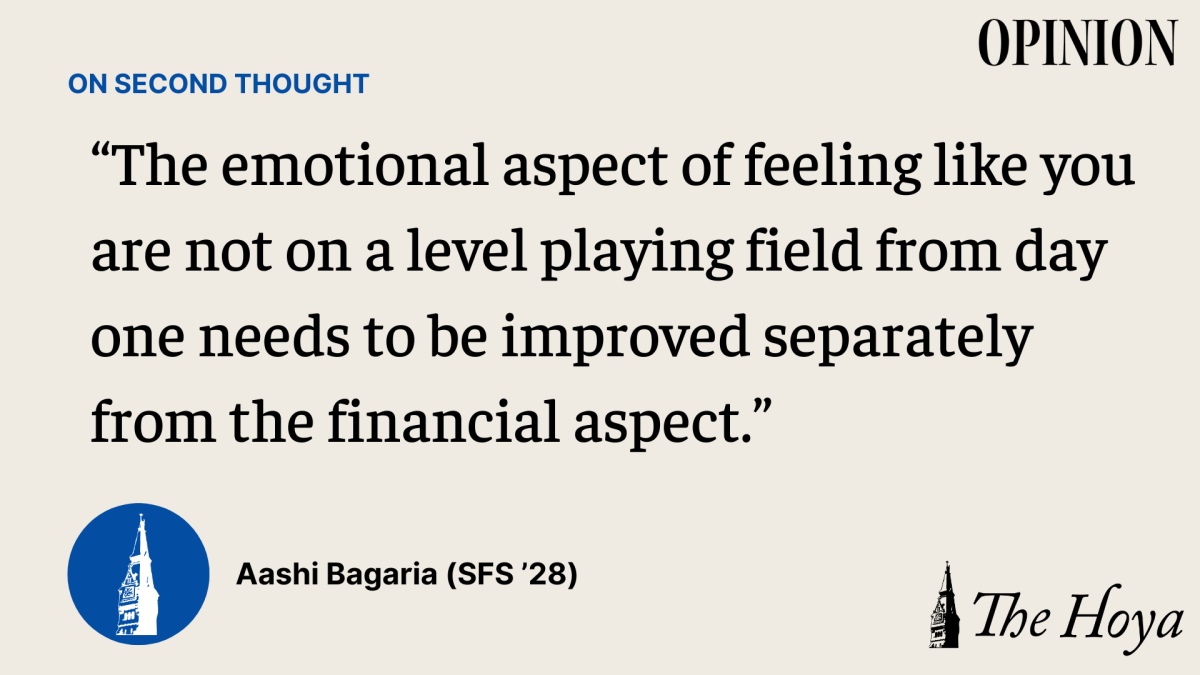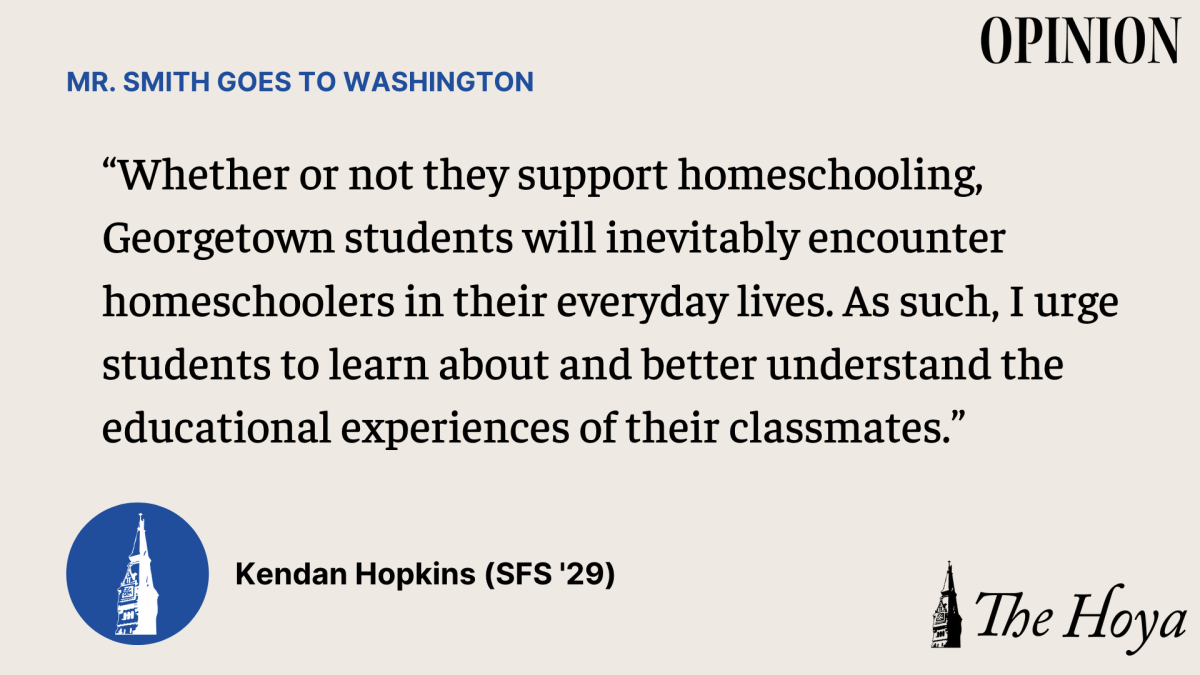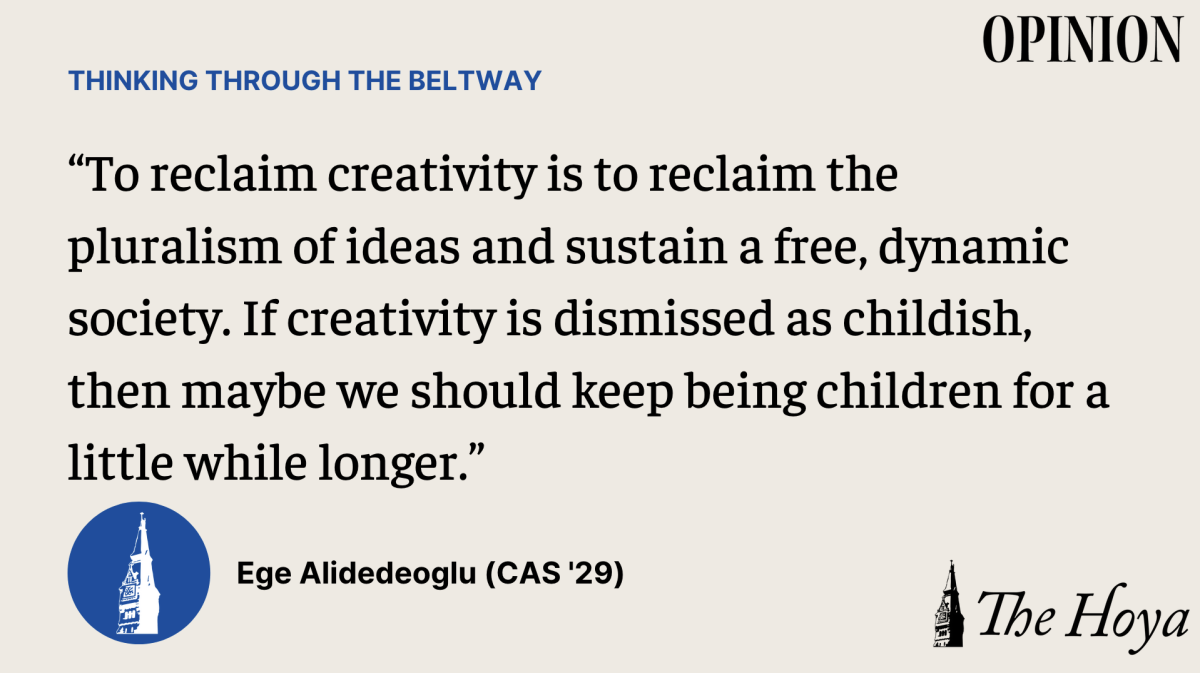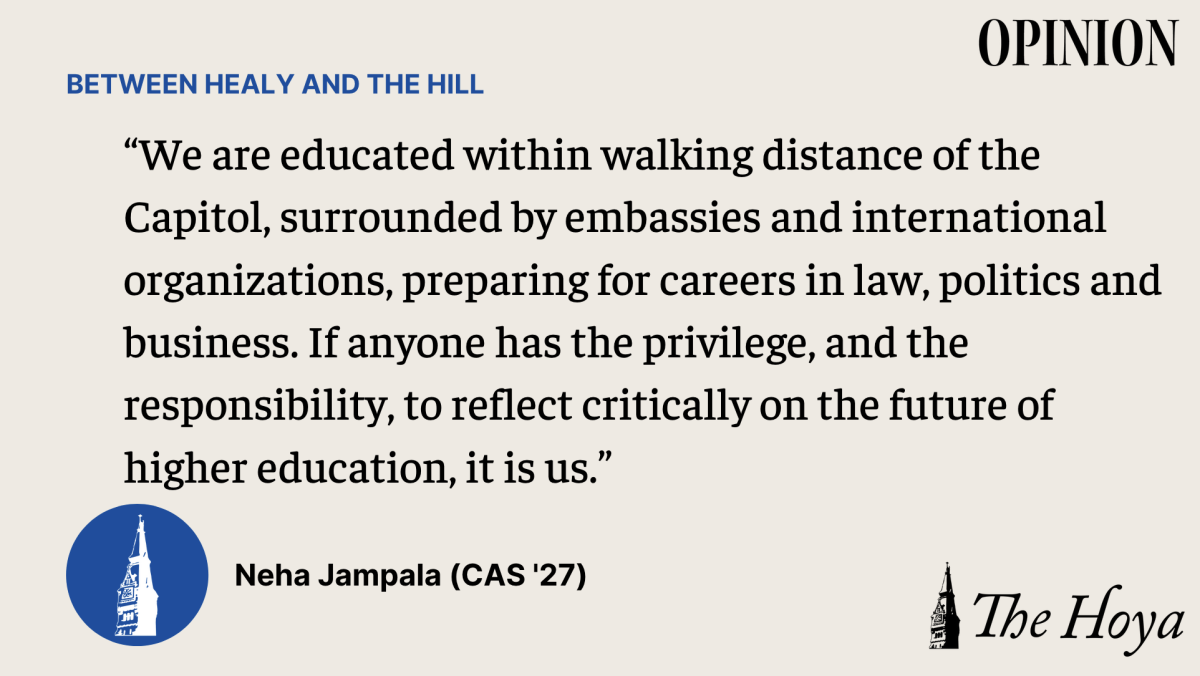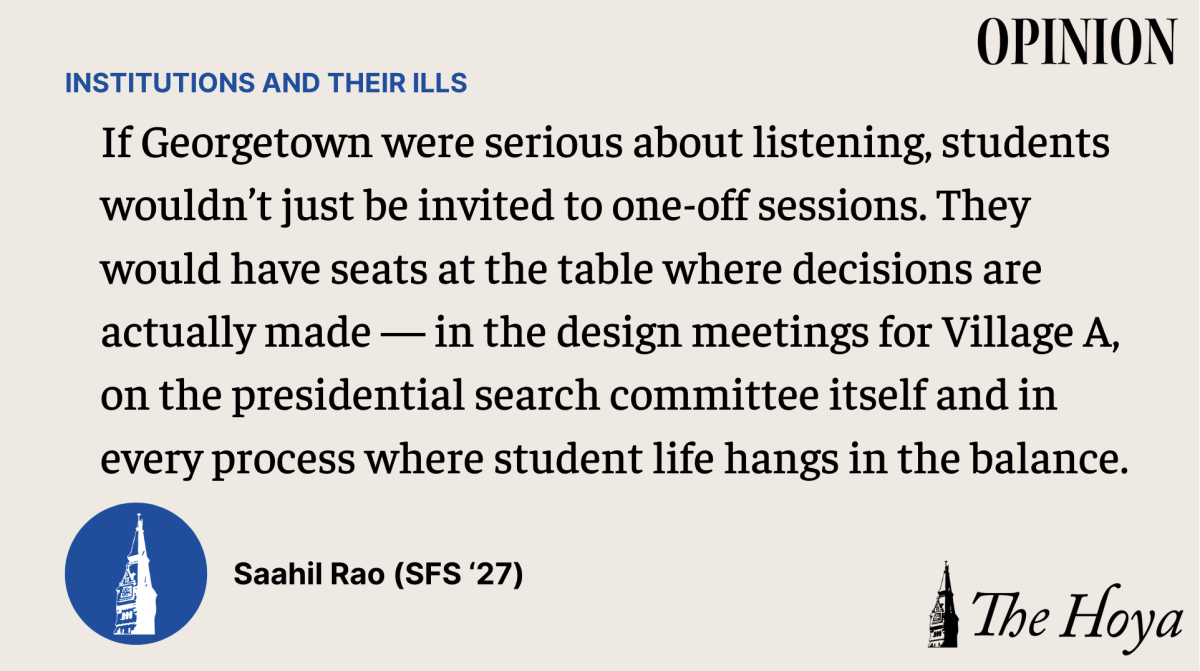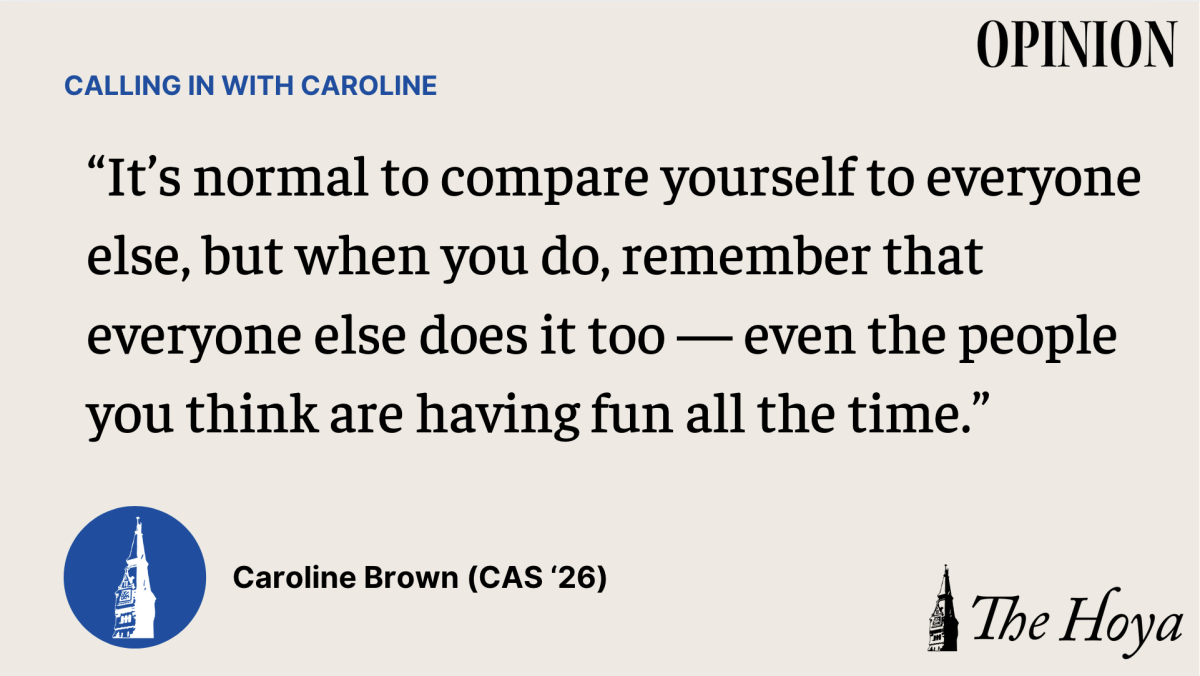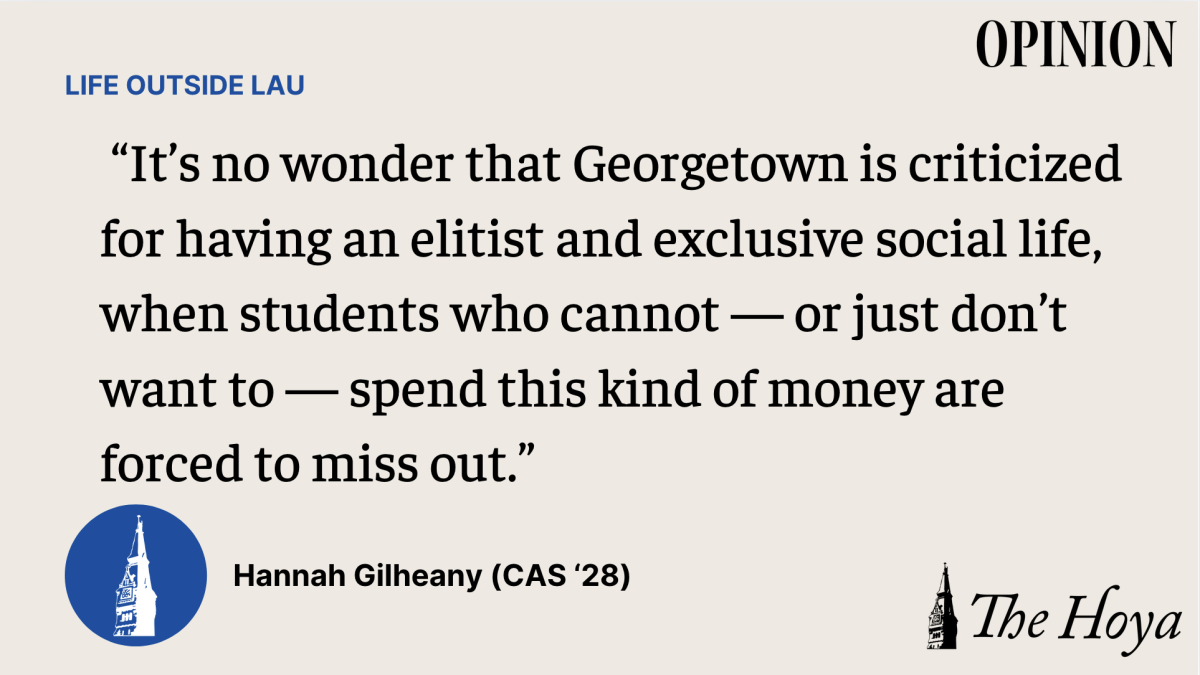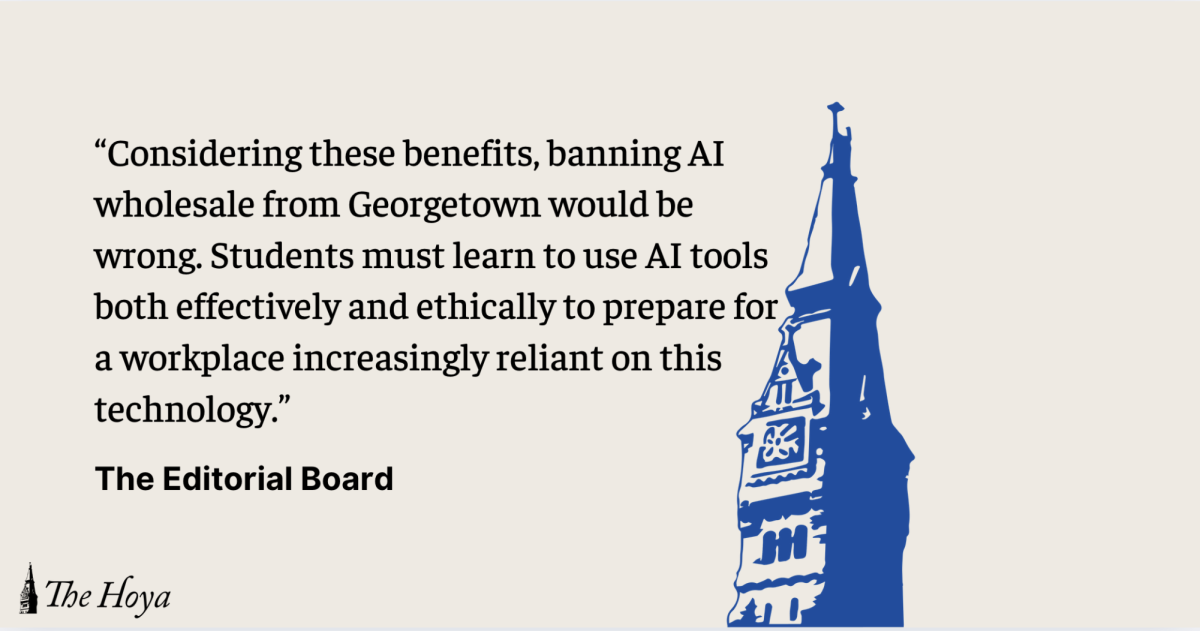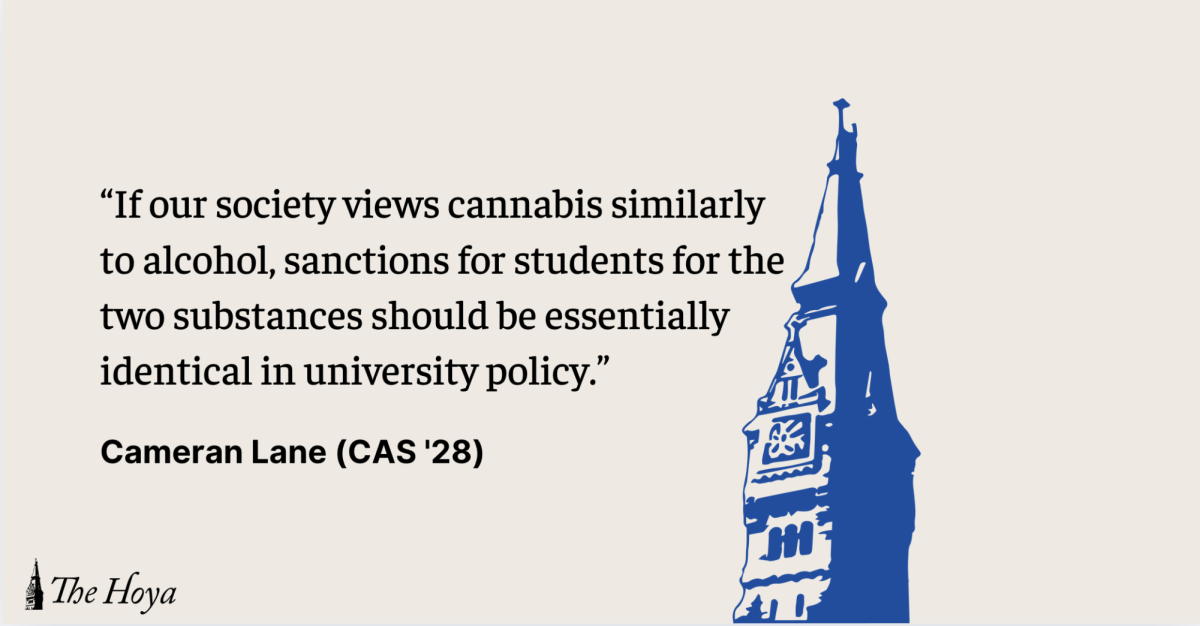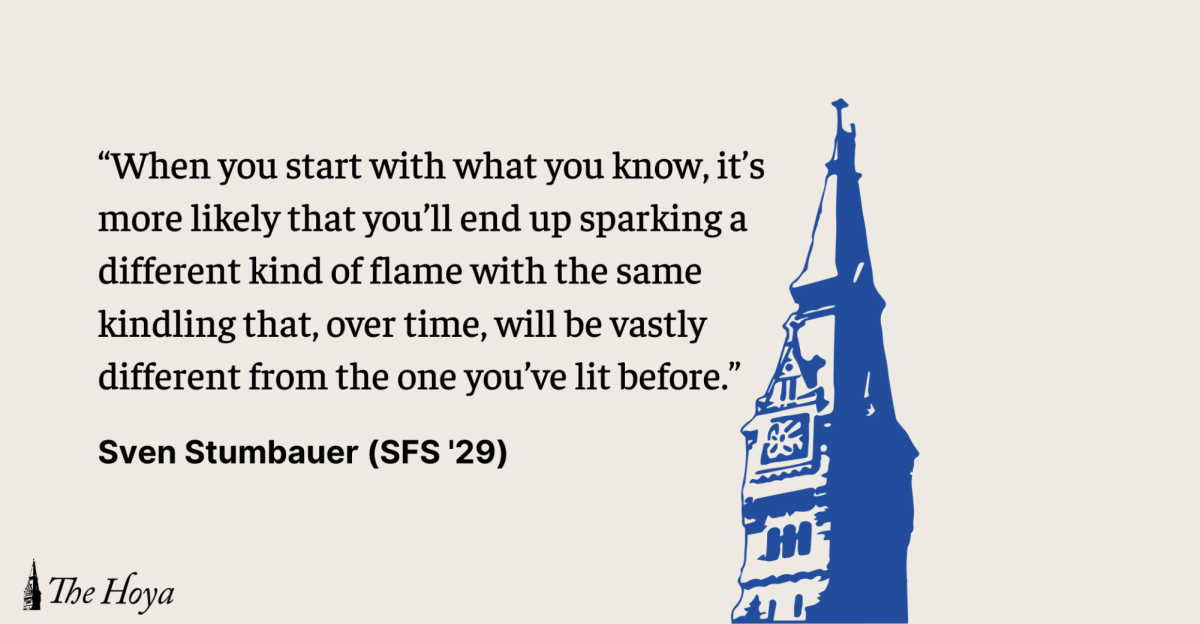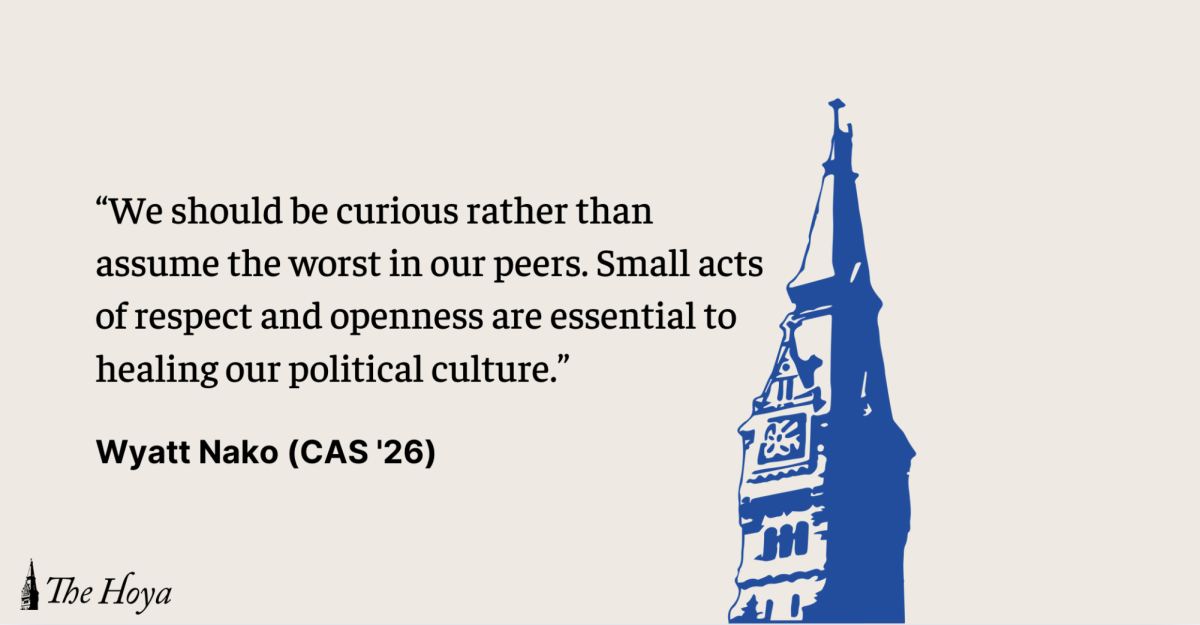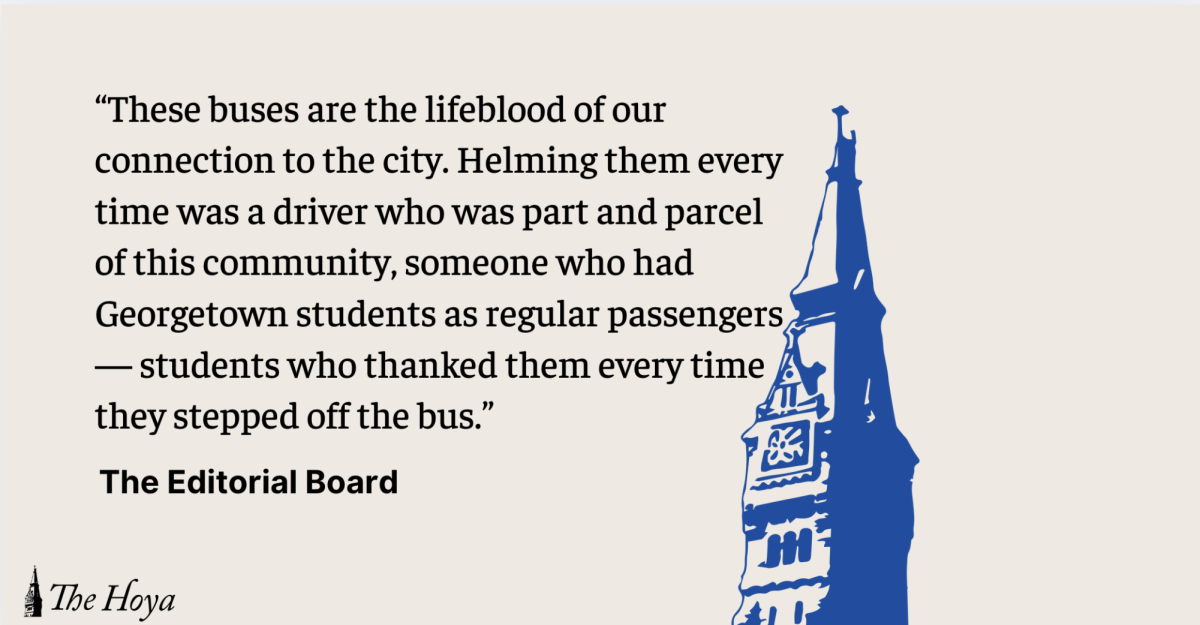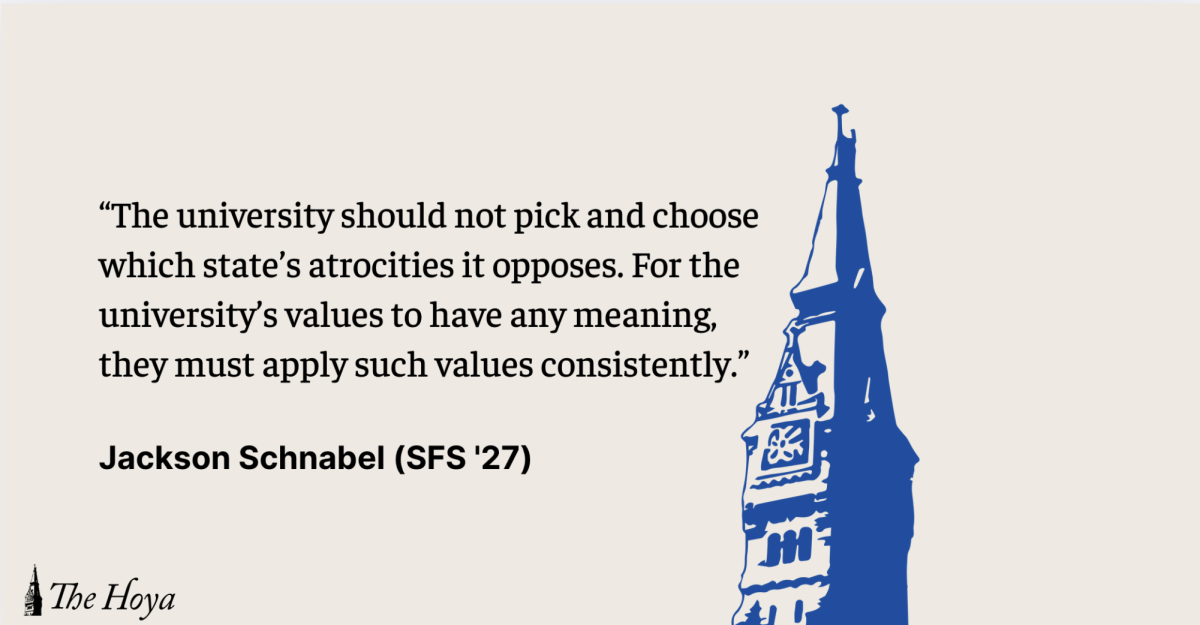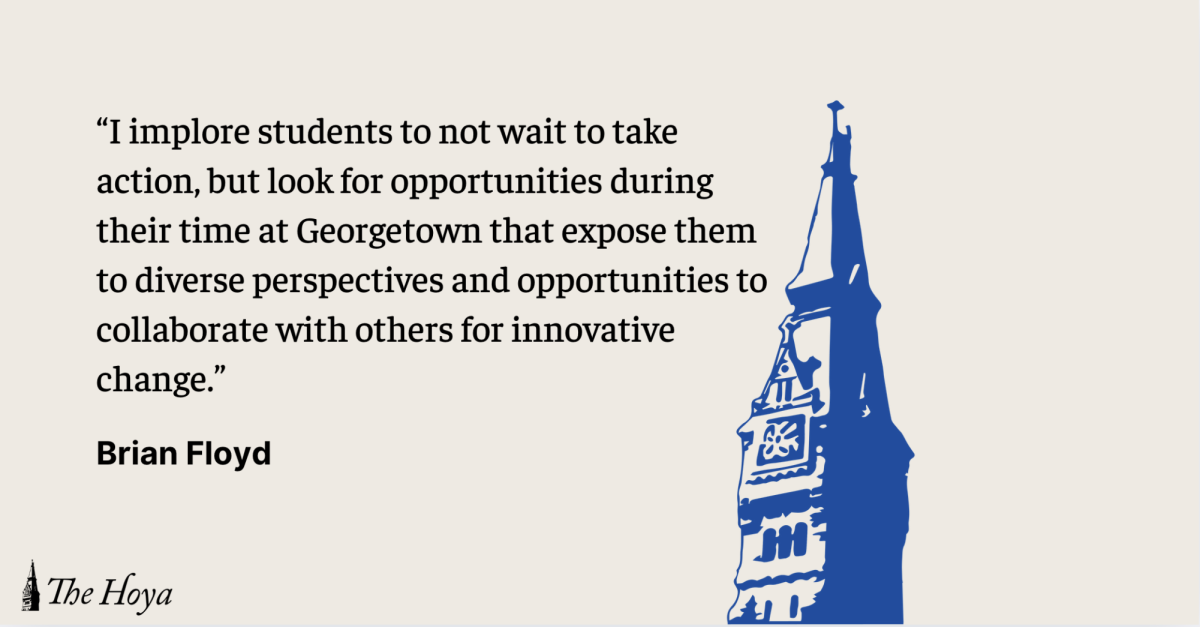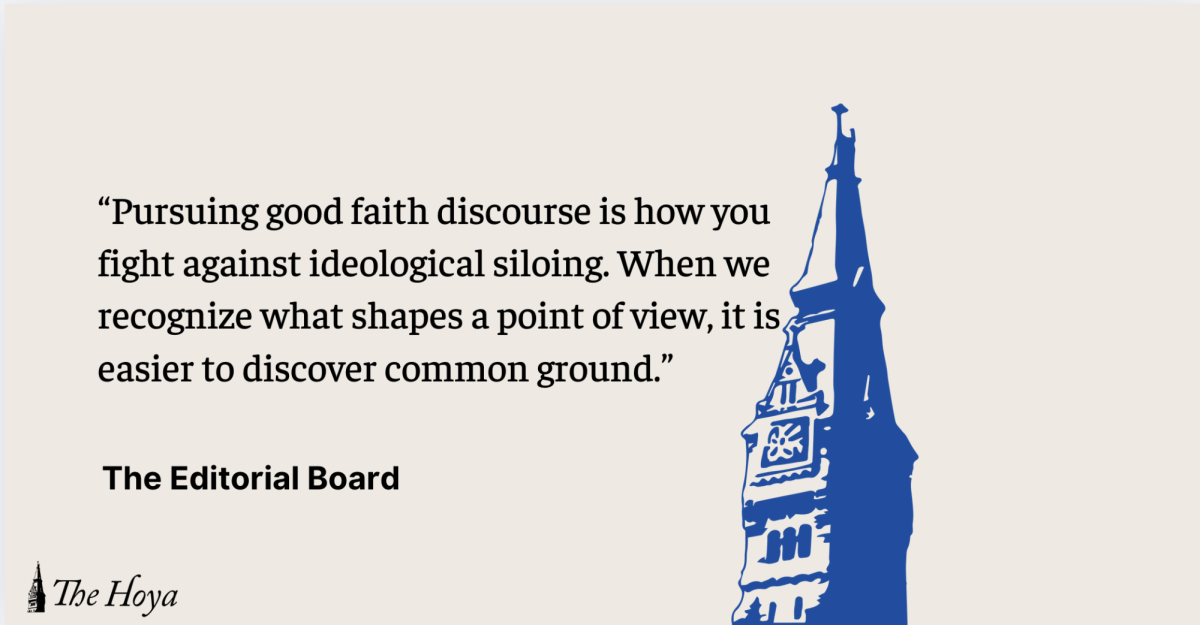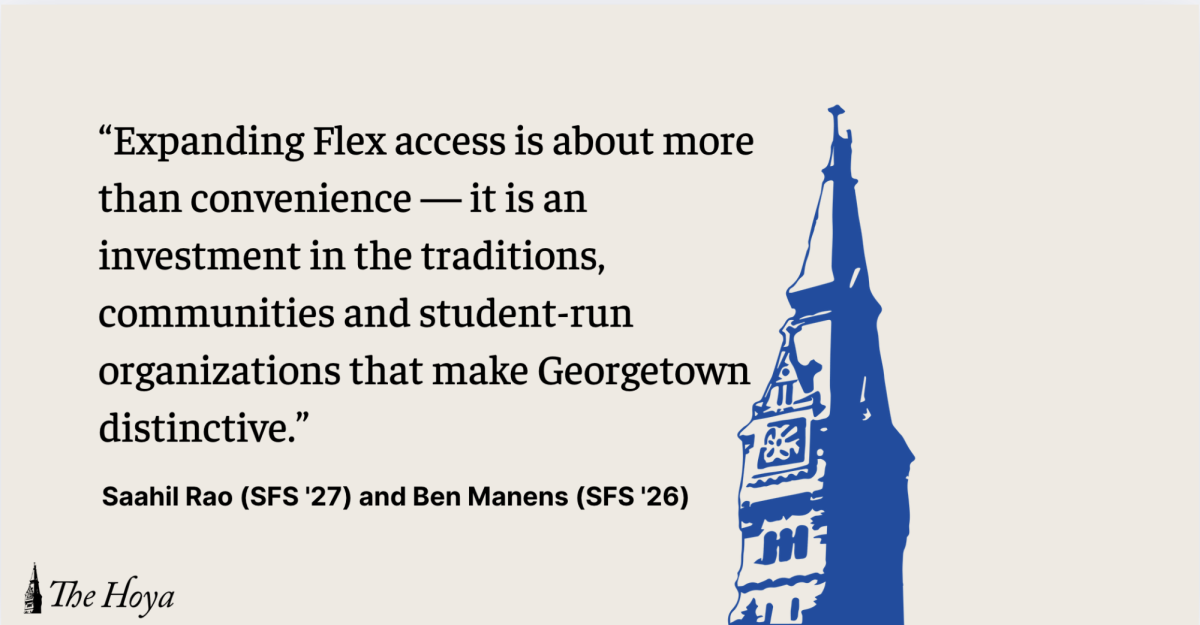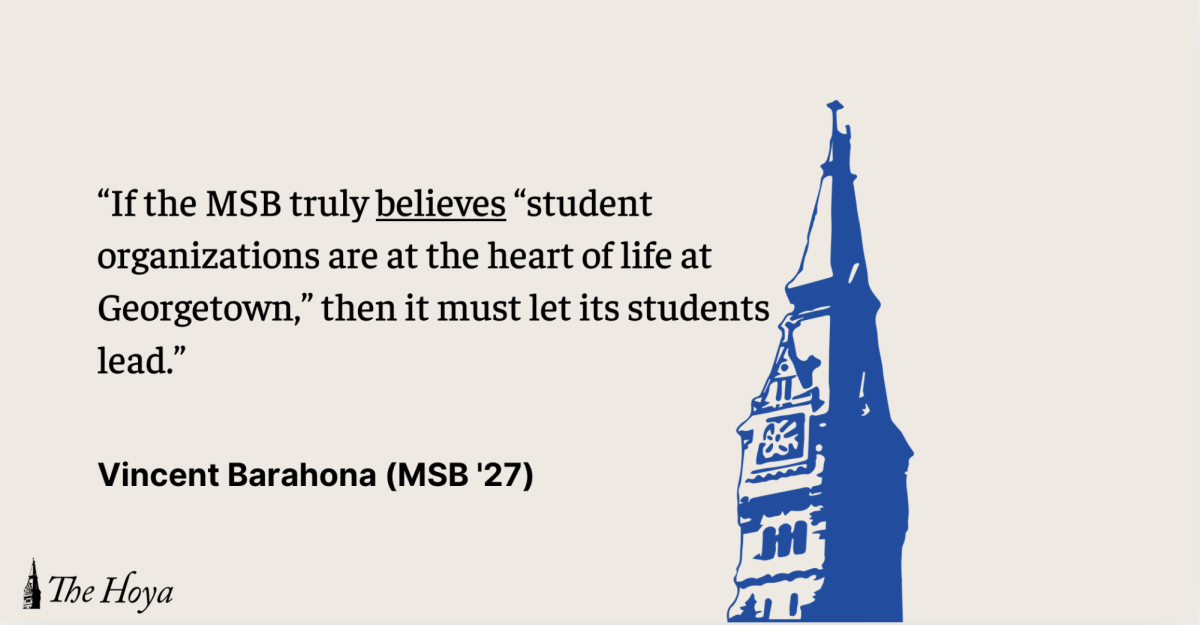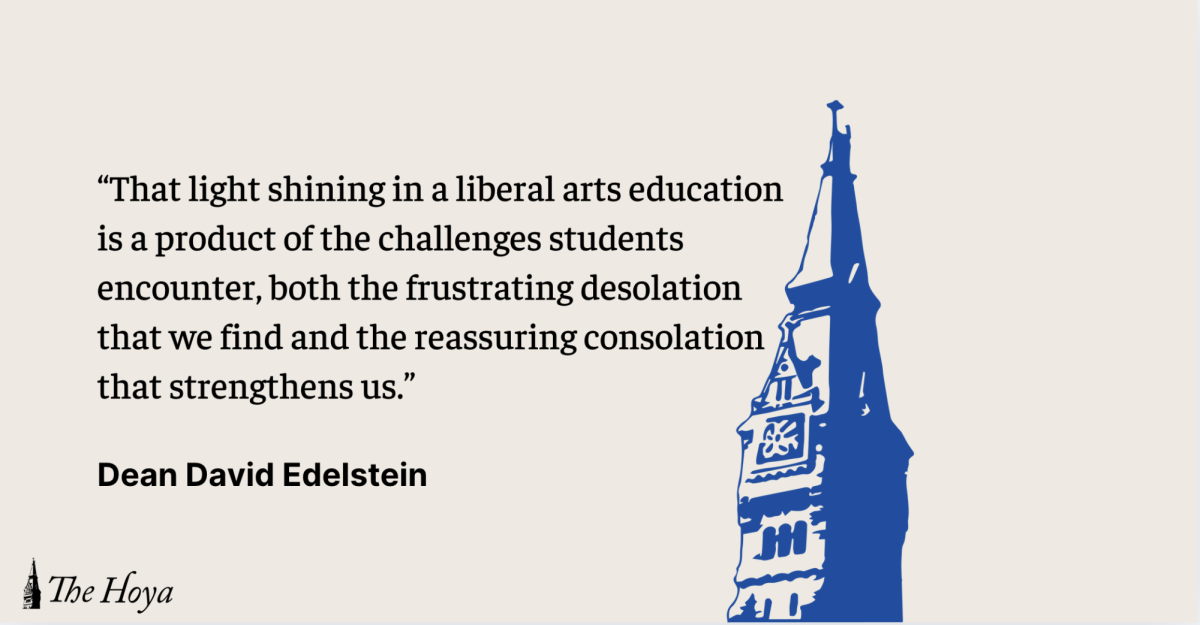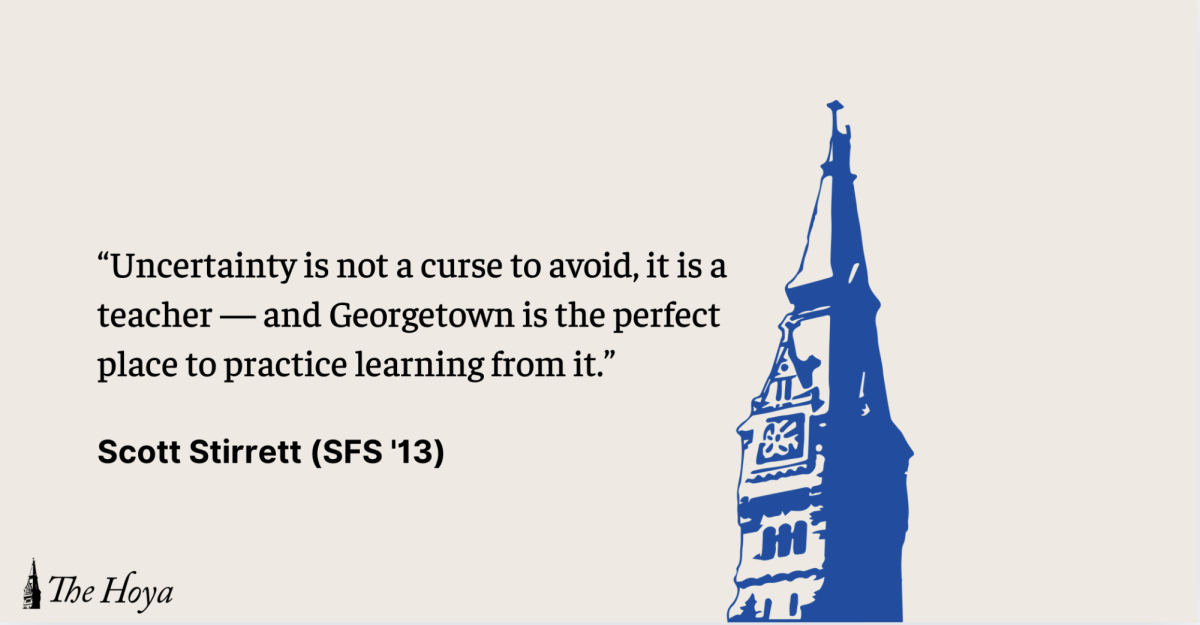Over dinner with friends at Leo J. O’Donovan Hall last week, my friends brought up their struggles with adjusting to the academic environment at Georgetown University. As low-income or middle-class students, they were among the first in their high schools or districts to be admitted to elite private schools like Georgetown. While the prestigious world of academia has opened its doors to low-income students, there is much work to be done in improving infrastructures of acceptance and adjustment.
As Anthony Abraham Jack, a professor at Harvard, says in his book, “The Privileged Poor,” “access isn’t the same as inclusion.” There is a large discrepancy between what is done to give students from underresourced public high schools a point of entry into schools such as Georgetown and the support given to them upon arriving to make the experience inclusive.
Students from less-funded public high schools have often had to go out of their way to achieve the academic credentials that allow them to get into schools like Georgetown; many learned in environments completely different from that of a well-funded college. In glaring contrast, students from higher-tier private schools or better-funded public schools have been preparing for a college education for a significant portion of their high school years. Their culture shock is thereby much less drastic than those students who have been transported to an inherently unfamiliar and unwelcoming environment.
Many Georgetown courses expect that students will automatically know what is required of them in class — from standards for paper writing to participation in class discussions or even a general feeling of comfort in an intense academic environment. Yet creating these expectations puts pressure on students to adapt, sometimes too quickly, to Georgetown.
Georgetown, to its credit, has programs like the Georgetown Scholars Program (GSP), which provides students with resources that allow them to navigate challenges like mental health, financial aid and social opportunities. Although the university does offer resources aimed at helping students adjust to Georgetown’s workload both through and outside of GSP — like the Writing Center and small-group foreign language tutoring that helps students for free — students often lack knowledge about these resources — making them underused. While resources exist at Georgetown, students may not always know where to look to find them.
Apart from academics, when it comes to club culture at universities like Georgetown, especially for exclusive pre-professional clubs, students who have had access to the subject matter through internships or competitions have a clear advantage and chance of receiving admission.
Although I believe Georgetown is on the right path with its work to create institutional remedies like GSP, the emotional aspect of feeling like you are not on a level playing field from day one needs to be improved separately from the financial aspect.
The responsibility for ensuring all first-years feel comfortable emotionally, financially and professionally at Georgetown is both the university’s and its community’s.
For the university, making additions to first-year-dominated classes by setting out time for clear expectations for paper writing, and providing academic clarity and resources to first-years can help make this transition easier. The promotion of existing support structures alongside the introduction of optional paper-writing seminars or opt-in “Writing and Culture Seminar” sections for students coming in with AP credits, or courses of a similar vein, will go a long way.
Students, too, must acknowledge and be mindful of those around us, while deans and student mentors can explain the various support tools Georgetown provides.
Academic and social acclimation, and creating a comfortable atmosphere for all Georgetown students, are of utmost importance. We must focus on building a culture of inclusion that not only welcomes all students through Georgetown’s front gates but ensures they feel empowered once they are here.
Aashi Bagaria is a first-year in the School of Foreign Service. This is the third installment of her column “On Second Thought.”


